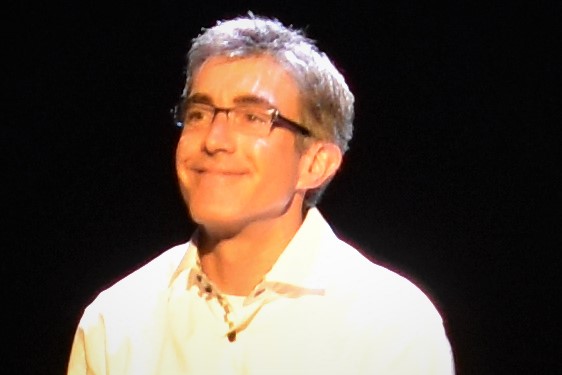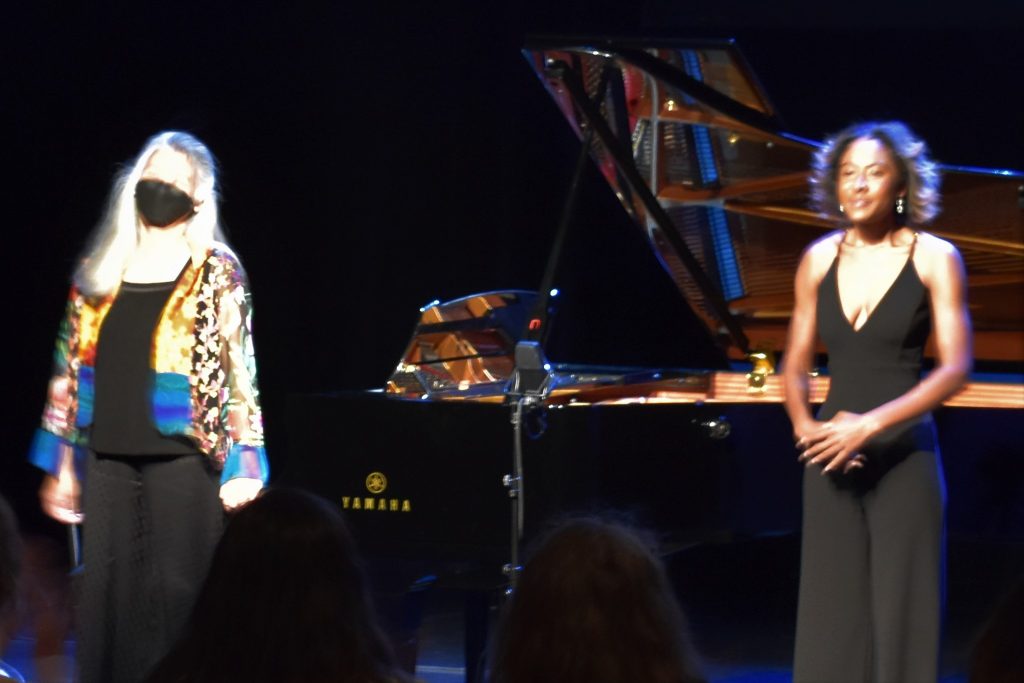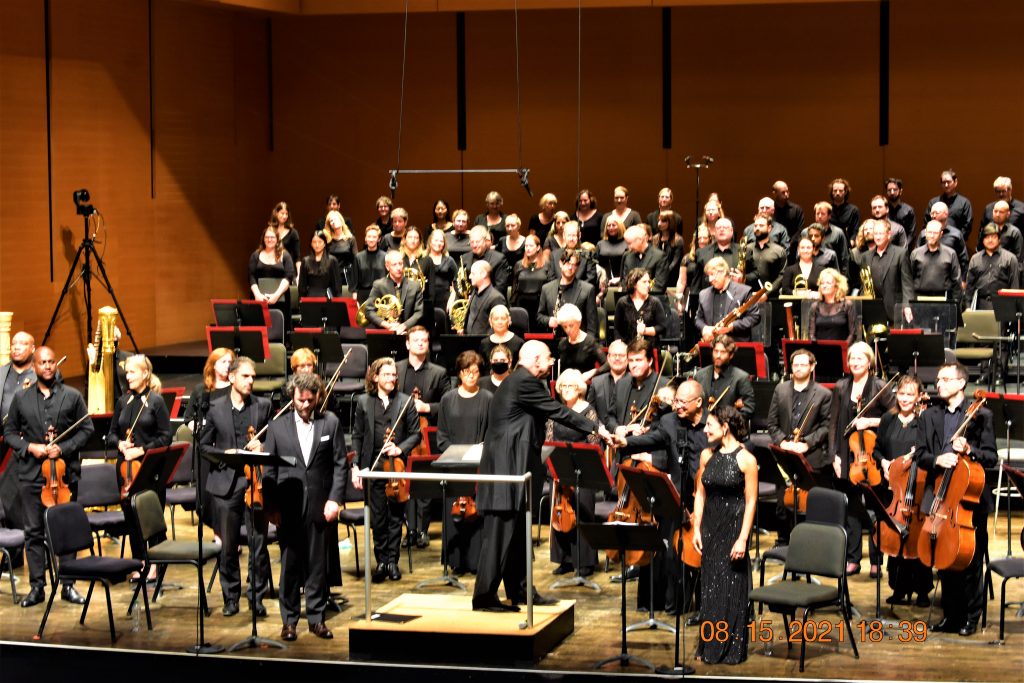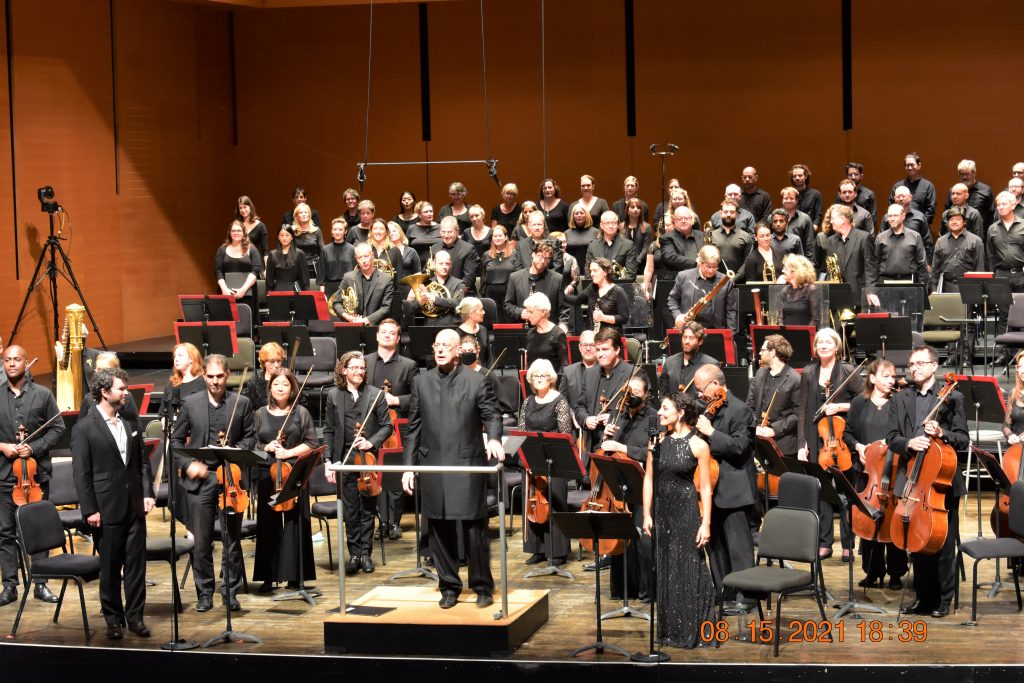
by Kevin T McEneaney
Nadia Boulanger was the most influential music teacher of the twentieth century. Some of her pupils: Igor Stravinsky, Virgil Thompson, Aaron Copland, Elliot Carter, Walter Poston, Igor Markevitch, Dinu Lipatti, Graźyna Bacewicz, Astor Piazolla, Philip Glass. Boulanger was also a noted musical critic, as well as the first successful female orchestra conductor. What she treasured in her students was resolute individuality within the multiple faces and facets of Modernism, which attempts to create fresh perspectives on how we perceive our fractured world. The final two chapters of twelve events were performed last Sunday.
Perhaps we might see Boulanger as a crucial Muse who encouraged the development of so many masterworks that we now take for granted on both sides of the Atlantic Ocean. Program Eleven, Boulanger’s Legacy: Modernities, at Luma Theater presented a sampling of salon works. Hovering over the performers was a large picture of Nadia in her salon.

Pianist Blair McMillan performed Notations (1945) by Pierre Boulez, which offered twelve short portraits of personalities at a salon party. The party opened with a majestically manic, garrulous personality who set the party rolling. Other characters of various ages flew by in rapid sketches: from vain to wise, or somber, or brilliant. McMillan captured the gaiety of the party as well as its humorously ironic edges as his fingers flew over the keys in jocund amiability, leaving us with sudden shock that the party was over and that the host stood alone in powerful silence.

An auspicious highlight of the event was soprano Chelsea Fingal DeSouza who sang charming children’s songs composed by Thea Musgrave (b. 1928) in Scots-English dialect, then later sang Paris Violin (1964) by Michael Legrand. DeSouza’s voice held such golden charm and emotional depth that I wished she had sung many more songs.
Adam Golka performed Sonata No. 2, for piano (1962) by recently departed George Walker. This was a hypnotically furious neo-classical jazz work that was as arresting as it was appealing in ruptured rhythms and harmonically edgy blasts. Here, also, I wanted to hear more from this manically marvelous character at the party.
Another high point of the soirée was String Quartet No. 3 “Mishima” (1985) by Philip Glass performed by the Grammy-Award winning Parker Quartet from Harvard University. This raga was led ably by first violinist Daniel Chong with support from violist Jessica Bodner, second violinist Ken Hamao, and cellist Kee-Hyun Kim, whose robust, resonant tone was impressive. This piece furnished the loudest applause.
Alex Sopp sounded like a magician in his solo performance of Astor Piazolla’s Tango Etude No. 3, for solo flute.
Baritone Tyler Duncan sang two cheerful pop songs, Stay in My Arms by Marc Blitzstein and David Conte’s Everyone Sang with mellow sincerity that cast a glow over the party and intimated that the event was over.
Blair McMillan concluded the concert with Toccata, for piano (1949) by Roy Harris whose resonant modal harmonies provided a felicitous conclusion to the memorable soirée.

Program twelve titled Boulanger’s Credo featured the American Symphony Orchestra under the baton of Dr. Leon Botstein opening with Virgil Thompson’s A Solemn Music (1949) which set the mood for a parting tribute to Boulanger with three of her short works being played.
One of Boulanger’s favorite works (which she often conducted) was Gabriel Fauré’s famous Messe de Requiem, Op. 48 (1900). This work, despite its Medieval Roman Catholic mythology, freights great solemnity in its journey past damnation to joyful deliverance. Soprano Andrea Carroll was good while baritone Joshua Hopkins was exquisite. The purity of musical lines in this Requiem linger in one’s heart so convincingly seductive that no one who hears it with a formidable orchestra can resist its somber meditation on death, perhaps provoked by the death of Gabriel’s beloved father. In the final Paradisial movement the violin section brought us to the blinding aesthetic that animated Dante Alighieri’s journey. The world of myth was infused with sublime transcendence.

P.S. The University of Chicago, in co-ordination with Bard, has published a significant scholarly book titled Nadia Boulanger and Her World edited by Jeanice Brooks. This is a valuable resource for libraries and music connoisseurs.
